
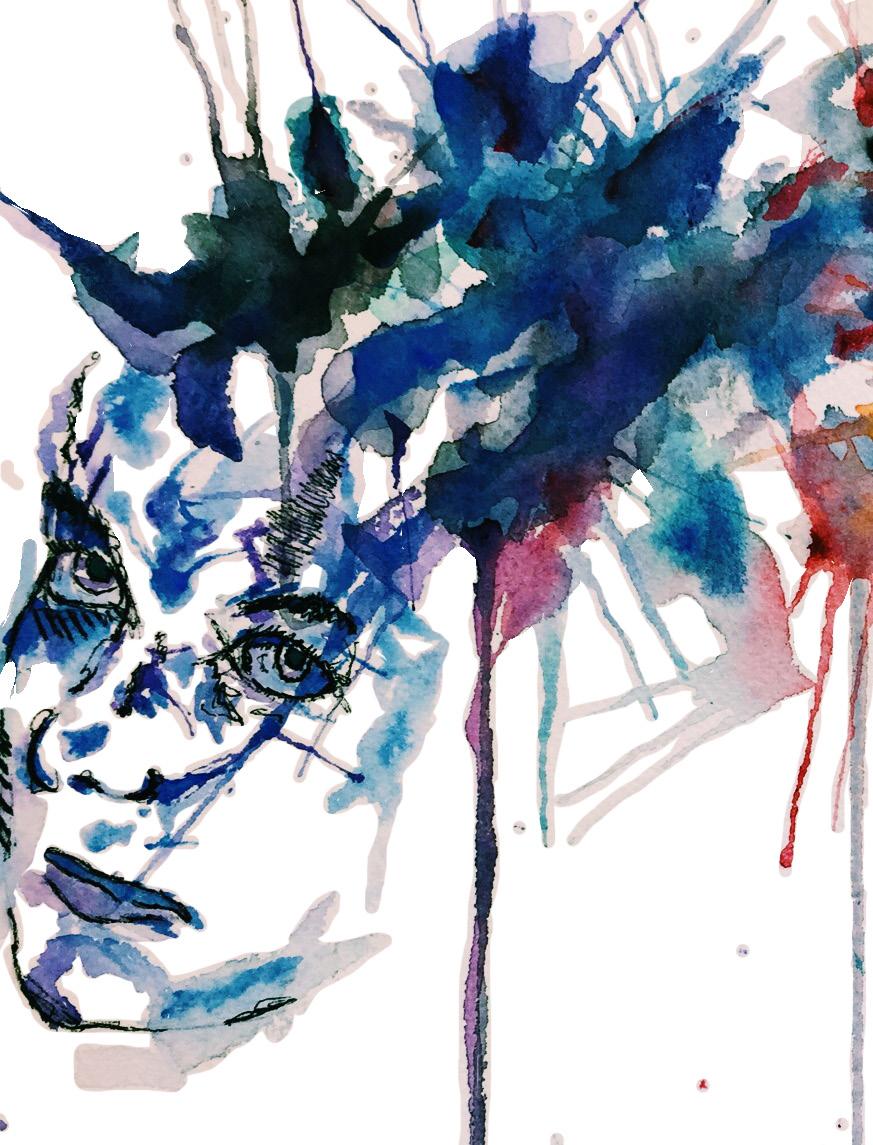



VOICES is the student-run literary magazine of the Duke University School of Medicine. We publish various forms of creative expression from the medical community and welcome submissions from patients, students, healthcare providers, employees, families, and friends. Our goal is to publish a range of unique voices from inside and adjacent to healthcare. As you read this issue, we hope that you will be inspired to submit your own writing or artwork.
Medicine is a story that takes on many forms. It can be joyous or tragic, anticipated or completely surprising. It can evolve with the suddenness of a hurricane or stretch interminably, like purgatory. It can make us feel invincible, victorious… or it can remind us painfully of our inescapable mortality, our inadequacies in the face of systemic injustices, our deep insecurities, and our fears of the future. These divergent experiences can evoke a deep dissonance within us, one that persists long after the moment has passed.
This issue is an exploration of the complex and often conflicting emotions medicine brings about in us. These pieces wrestle with the ways medicine moves us, challenges us, and causes us to reconsider ourselves, our identities, our values, and the roles we play—as patients, caretakers, learners, educators, advocates, and ultimately, as people. While reading this collection, we invite you to linger in the discomfort of that dissonance, and to receive and bear witness to the change it might stir within you.
As always, we thank the Trent Center for Bioethics, Humanities, and the History of Medicine for their continual support throughout the years, most recently during our Dissonance themed contest for spring 2025. We would love to print your prose, poetry, or artwork in a future issue of VOICES and welcome your submissions to voices@duke.edu. For more information, please visit our website at sites.duke.edu/voices.
Your co-Editors-in-Chief, Lily Fahs & Lucy Zheng
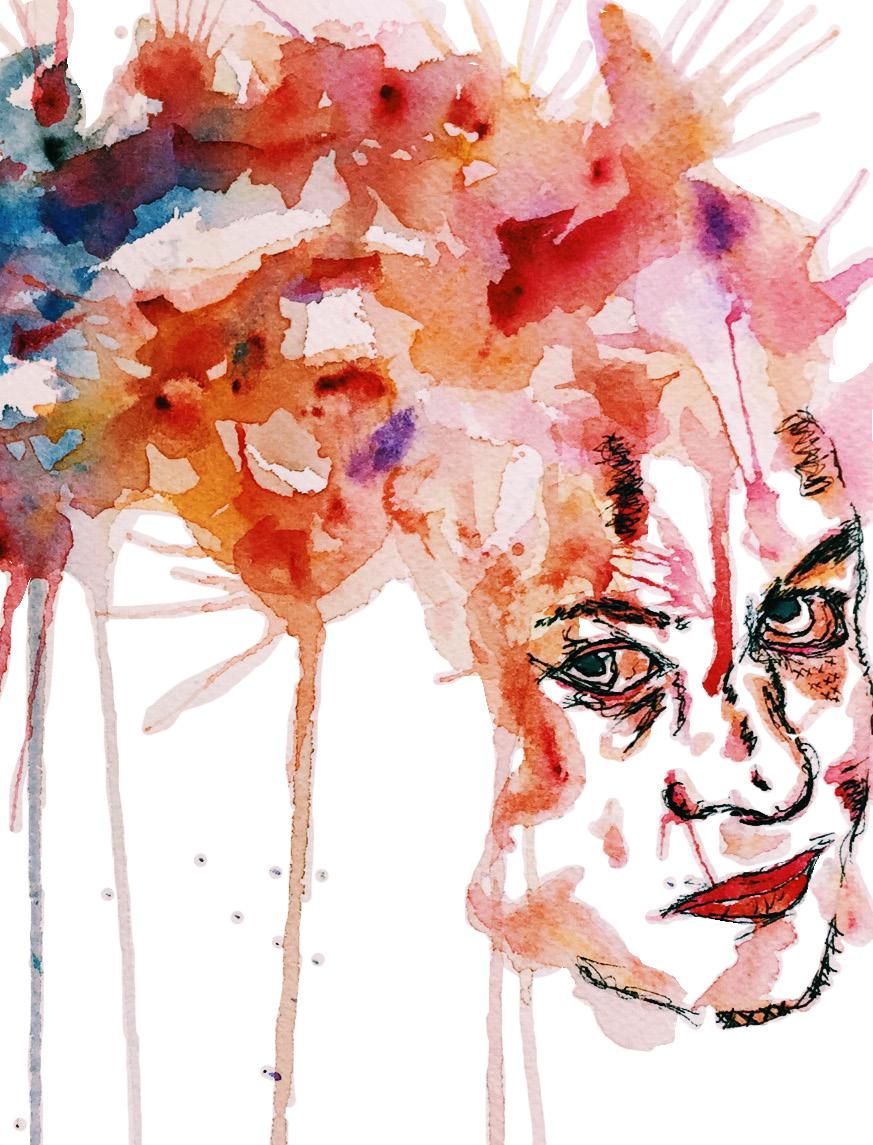
Karen
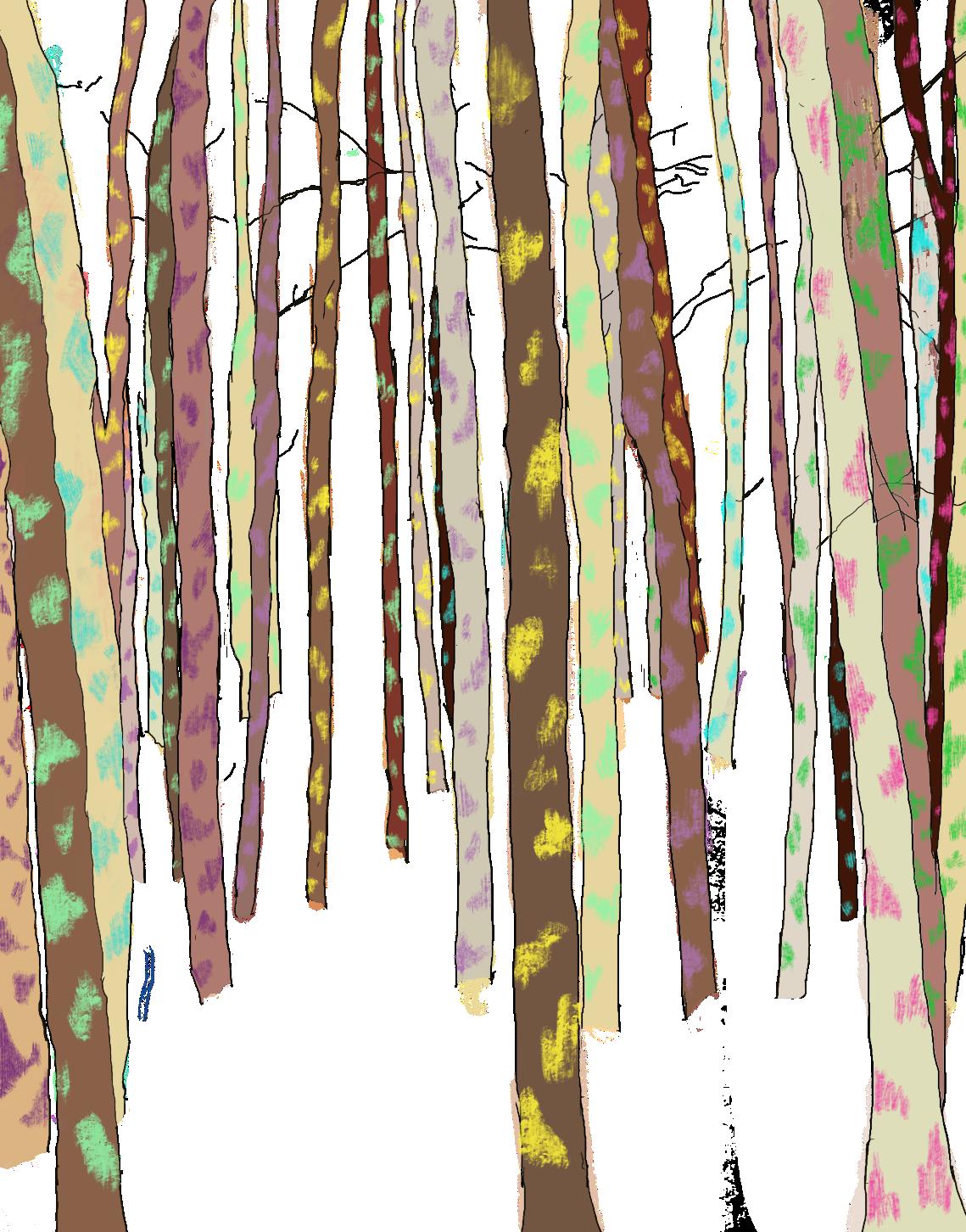
You drive under arches of maples and oaks, the sun blinking between lichened branches that have been growing for many more years than you. The leaves embrace your car cocoon-like, reducing the sky to scant twinkles.
Few people come here on weekday afternoons. You imagine the whole city trapped in buildings, clacking away at keyboards with screen-lit frowns. At the hospital, the residents must be rushing down hallways to respond to pages, or typing questions to annoyed consultants, or listening with their mighty stethoscopes to lungs that wheeze and crackle . . . like the sound of your tires now, crackling over the gravel lot.
The car door opens, and your rocky footsteps begin to echo under the cathedral of leaves. There is always music here. As you embark on the trail, you wonder which bird makes the whee-who-who sound, and which the whack-uh-whack, and which the eek-eek-eek. By contrast, the hospital makes the incessant beep-beep of a heart rate just above normal, the ziiip of a moving bed, and the huuh-hoo of a mechanical ventilator. The birds know none of these sounds; they have no inkling of what occurs outside the forest. Imagine if they could see Mr. Robinson gasping in the weak light of his hospital window, his soon-to-be widow wondering which breath would be his last. Would the birds care? Or would they simply shrug their wings?
“Well, that’s just the way things are,” they may say. “Everyone suffers. Everyone dies. What made Mr. Robinson so special?”
In which case, you would pinch their beaks and respond: “Mr. Robinson was my patient. I went to medical school to take care of people like him. He wasn’t supposed to pass away under my watch.”
You walk deeper into the forest, breathing in . . . out, picturing the oxygen sucked out of the pines and into your lungs, then dancing in your toes and fingertips. A building block of life. Your breaths become deeper and louder, and you imagine them merging with Mr. Robinson’s rattling snores.
Rrrruuuccchh. Rrrruuuuccchhh.
They echoed in his hollow room, vibrating the scrub sleeves of his five-member medicine team. You put your stethoscope to his chest and heard the rattling magnified as your body buzzed like a jackhammer.
4 sites.duke.edu/voices
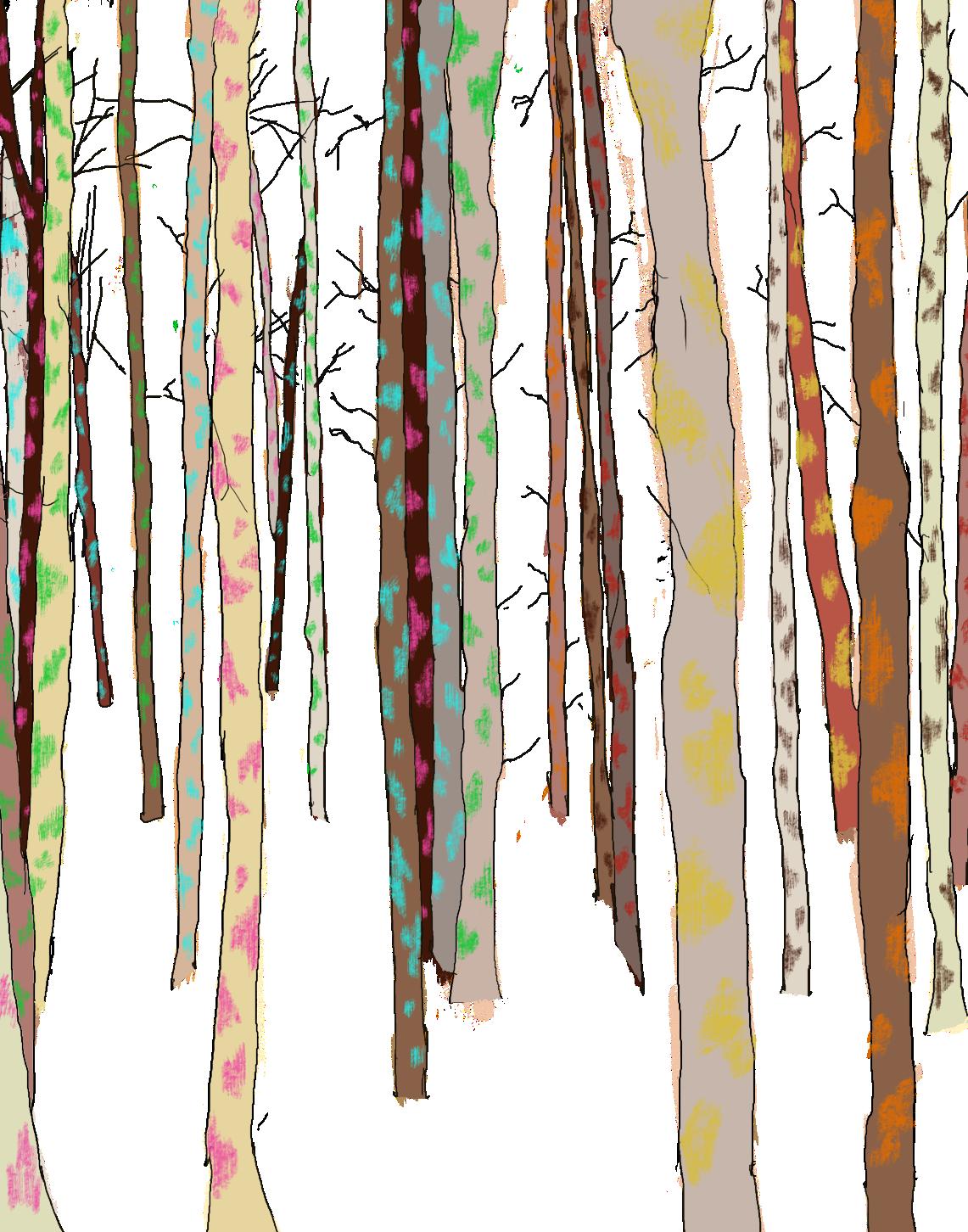
Rounds continued, and you traipsed behind the tails of long white coats for an hour of hyponatremia and hyperglycemia and delirium until a nurse interrupted and whispered to a resident, who turned to you and said:
“Mr. Robinson has passed. If you want to come with me, I can show you how to pronounce death.”
You were not one to refuse a learning opportunity.
The resident placed her stethoscope on Mr. Robinson’s chest. The room was no longer rattling.
“Don’t be afraid. You can listen as well.”
For the past three years, you had practiced auscultating heart and lungs, closing your eyes to focus. You had strained to detect a third beat or distinguish crackles from snores. You had cursed the hyperinflated lung for drowning out the sluggish thump of an enlarged heart and despised the ticking mechanical valve for hiding a native valve’s murmur. But there had always been that magnificent cacophony of what existed beneath the skin, that struggle of drawing a diagram with your ears.
Now the diagram was empty, except for some otherworldly sound that resembled the hollowness inside a PVC pipe, a bodiless echo that was straining to speak. Perhaps it was residual bowel gas.
“Next, I feel the pulse for one minute. It has to be a full minute. You have to be looking at a clock.”
You caress the bark of a tree, cherishing the texture. You do plenty of seeing and hearing, but never enough feeling. The tactile sense is so vivid. You put two fingers to your neck and feel your carotid jumping.
“Now I shine a light in the eyes to look for a pupillary reflex.”
You are not supposed to stare at the sun, but somehow you always want to, like it will bring you closer to the universe. You squint upwards and feel your pupils tighten. Stop it, they say. Don’t look up. But you just keep staring at that pinprick in between the treetops until you become dizzy, almost nauseous, and then that little spot gets stuck in your vision, dancing around like a purple marble in the back of your head. The sun is emblazoned on your retina, and as you look around at all the many trunks and fallen leaves, you smile at the thought that you have brought the sun down to earth, at least within the confines of your mind.
“Lastly, I check for a response to painful stimuli. Many people will do a sternal rub, but this can be disturbing for the family to see, so I do it more discreetly. I squeeze the bottom of the fingernail, under the sheet like this.”
You try it on yourself, wincing as you walk, but somehow you want to keep repeating it every few steps, like a ritual, until your nails become sore.
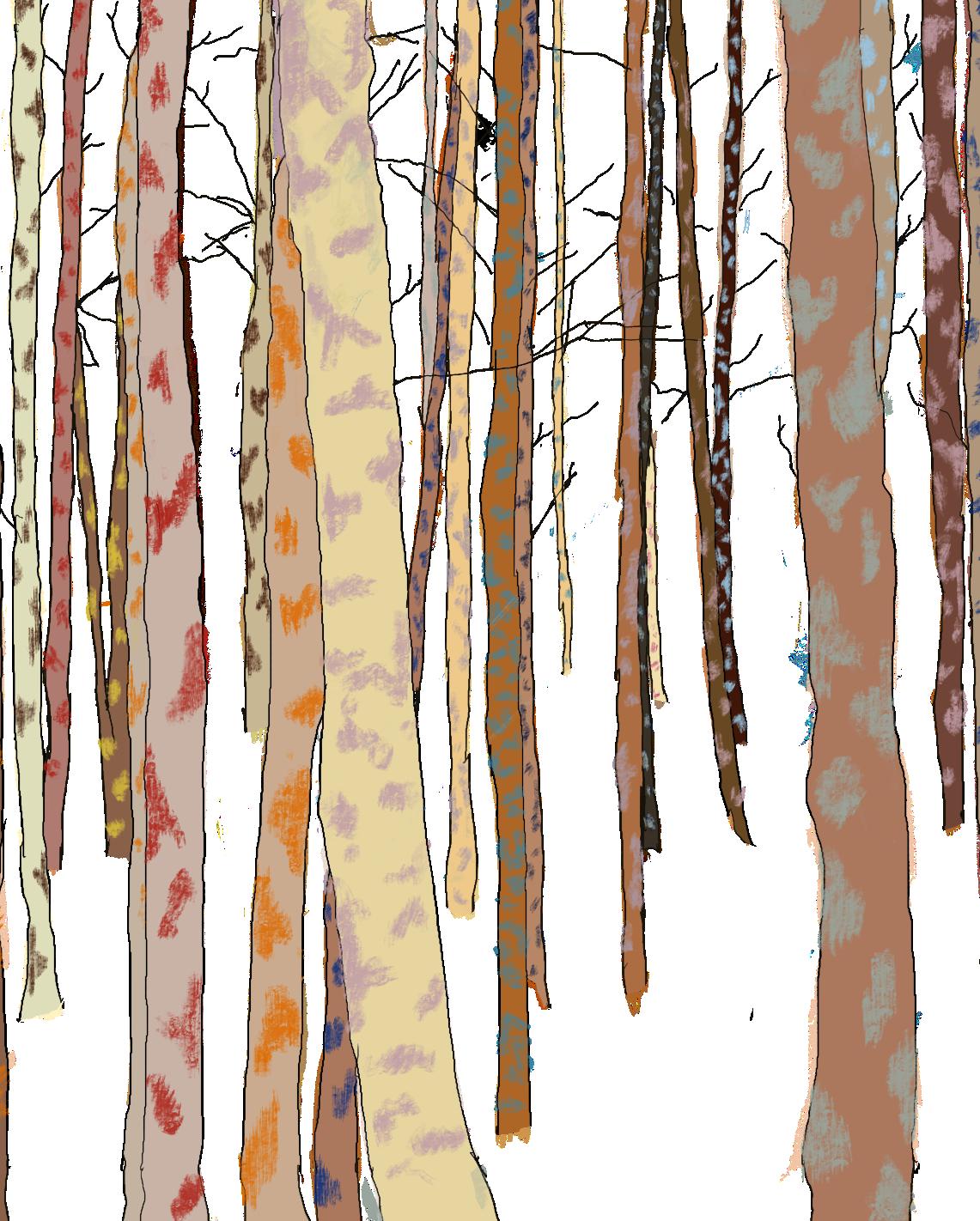
“The time of death is one-thirty PM,” the resident says, and after a pause: “Mrs. Robinson, please take as much time as you need.”
In the knots of the tree trunks you see her face, contorted as she fell forward into a Kleenex. You touched her hand, gently rubbing her thumb, and tripped on powerless syllables:
I’m-so-sor-ry-for-your-loss.
When she opened her eyes and looked into yours, you saw the tunnels of the pupils, the unending dark that would never reflect the smile of Mr. Robinson again.
“Thank you,” she said, making you feel empty and full at the same time.
You returned to rounds and tried to learn. What did you learn? You could not remember.
“You can go home,” the senior resident said some hours later. You shook awake; you had not realized that you were staring blankly at Epic. “Better yet, go take a walk. It’s a beautiful day.”
It is all part of the same world: you walk down the hallway of the ICU, and somehow you end up in the middle of a forest among the chirping birds and the swaying trees. You take a breath and continue on willing joints. You cannot believe your good fortune to be moving on two legs. You have never loved and despised life so much; it endlessly gives and gives until finally it takes everything back. But what if Mr. Robinson is still here, floating in this green and golden space, happy and uninhibited, despite what science might say–
Well, he is certainly present in a nonmaterial sense–that is, he lives in you, or in the wanderings of your mind. At the very least, he has taught you how to pronounce death.
Death, pronounced. There it is: waiting at the end of all the Instagram stories and bar socials and rounds and residency interviews and Match Day. For you, life is always so urgent and nerve-wracking, but someday when you become rigid and waxy like Mr. Robinson, your worries will fall away like ashes. And in the aftermath, the birds will still call to each other; the squirrels will rustle in the autumn leaves; the trees will stand tall and knotted. No creature in the forest will know the difference. This is everyone’s happy ending: ignorance and continuance. It is not right. The world is supposed to shake at the news of Mr. Robinson’s death. But there is only the shaking of his widow, the sobs that you heard outside the door, along with the quiver of your own reality as the sun’s haze bounces off your hair and you continue walking, remembering, and struggling to hear the voiceless and distorted lesson.
6 sites.duke.edu/voices
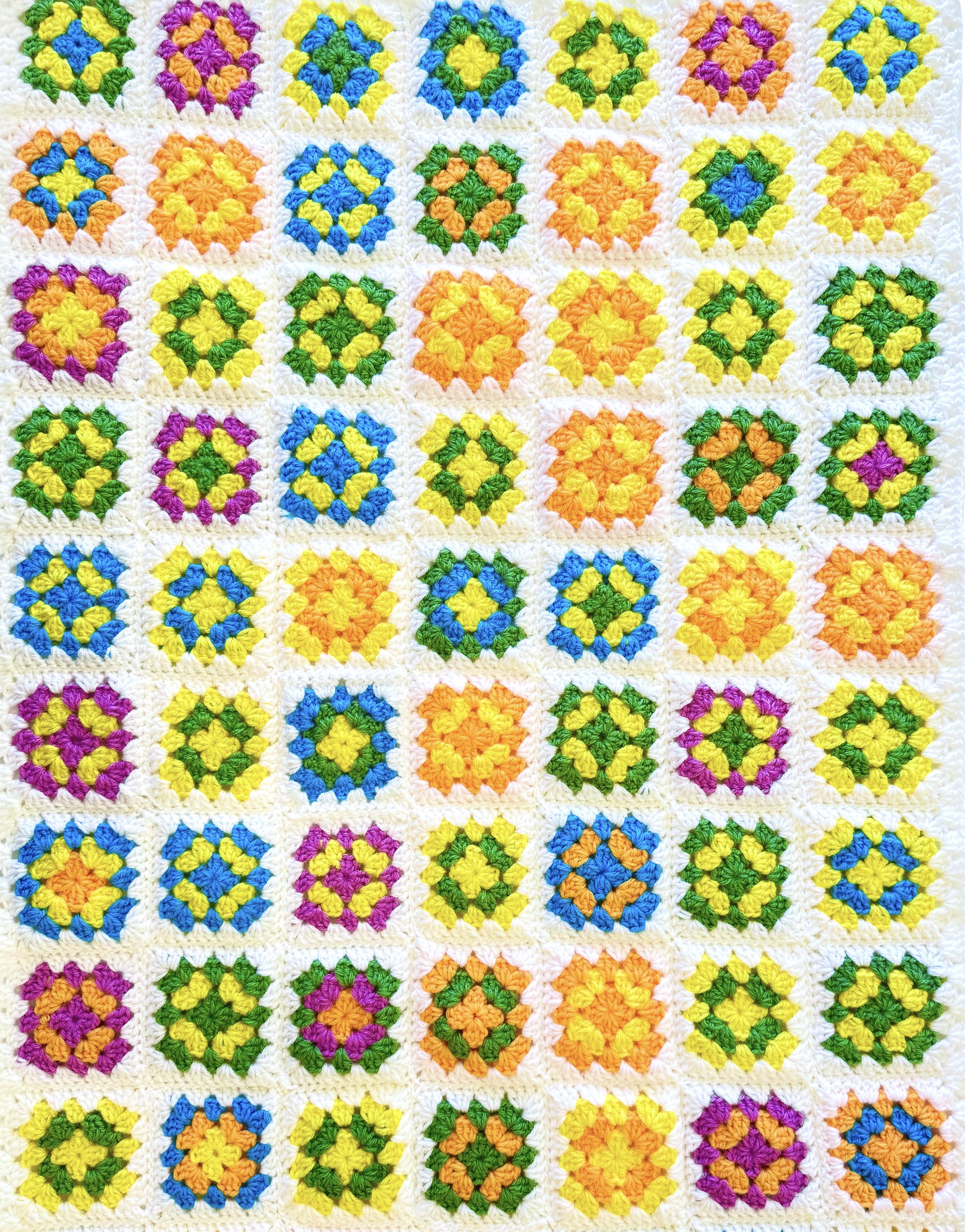
Jazlyn Seidel is a third-year medical student at Duke University School of Medicine interested in exploring the shared challenges and milestones of medical education.
This piece highlights a medical student’s journey through clinical rotations with each hand-crocheted square representing a patient they cared for. Pink signifies a mistake made and learned from, orange a lesson gleaned from another provider, yellow moments spent providing support or motivation, green time taken getting to know a patient on a deeper level, and blue advocacy when something was amiss.
Individually, these squares, and the slow progress they represent, feel mismatched. The dissonance between the provider you are and the one you aspire to be is ever present. Yet from above, these moments of failure, resilience, and compassion come together to reveal a greater truth: growth in medicine, albeit slow, is undeniably beautiful.
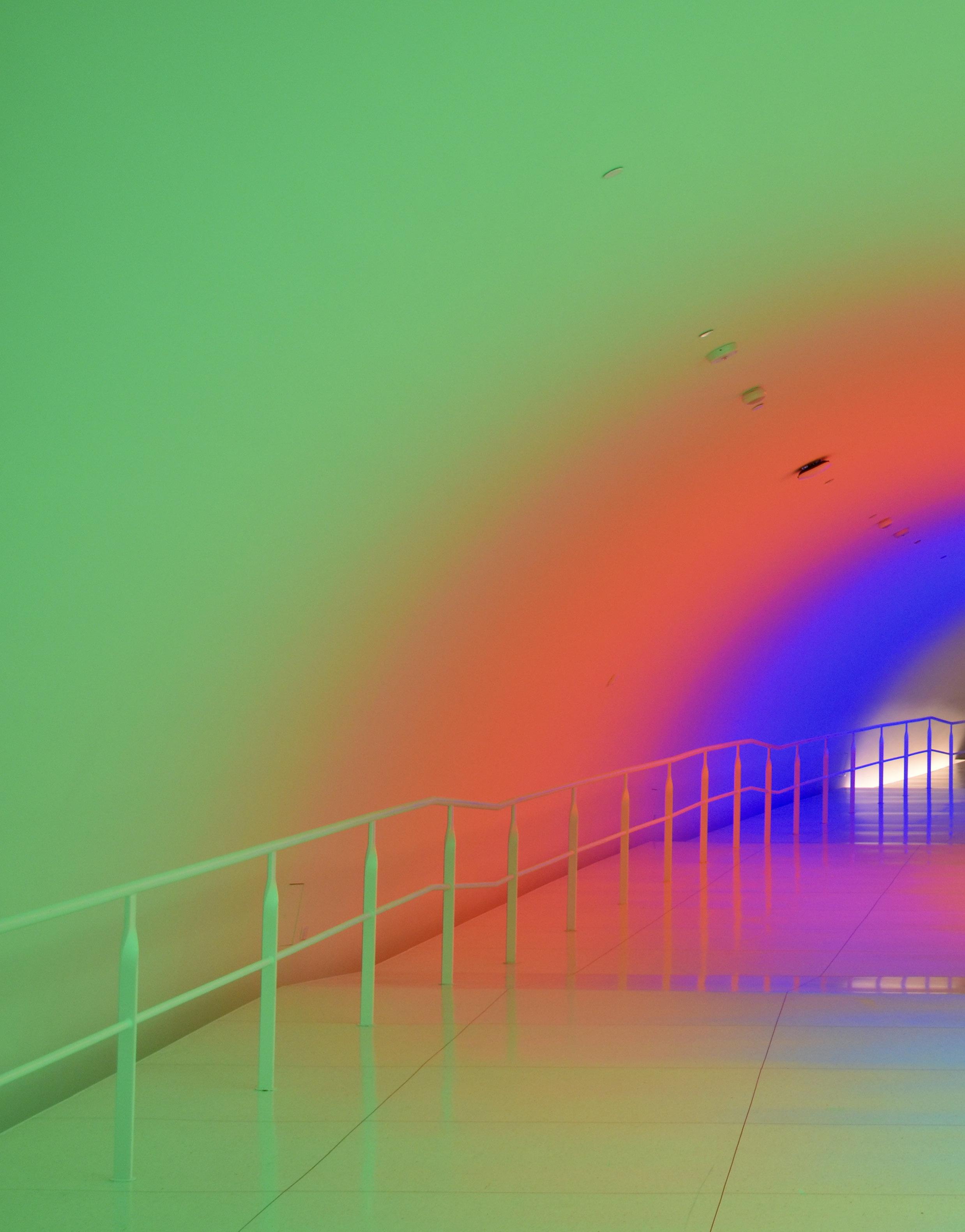
light me up
Lizzy Kramer completed their undergraduate studies at Duke with a degree in Cultural Anthropology and Public Policy and spent the following year as a Hart Fellow researching community based art. Now they live in San Francisco working for a tenants’ rights organization and doing community murals and mural commissions.
8 sites.duke.edu/voices
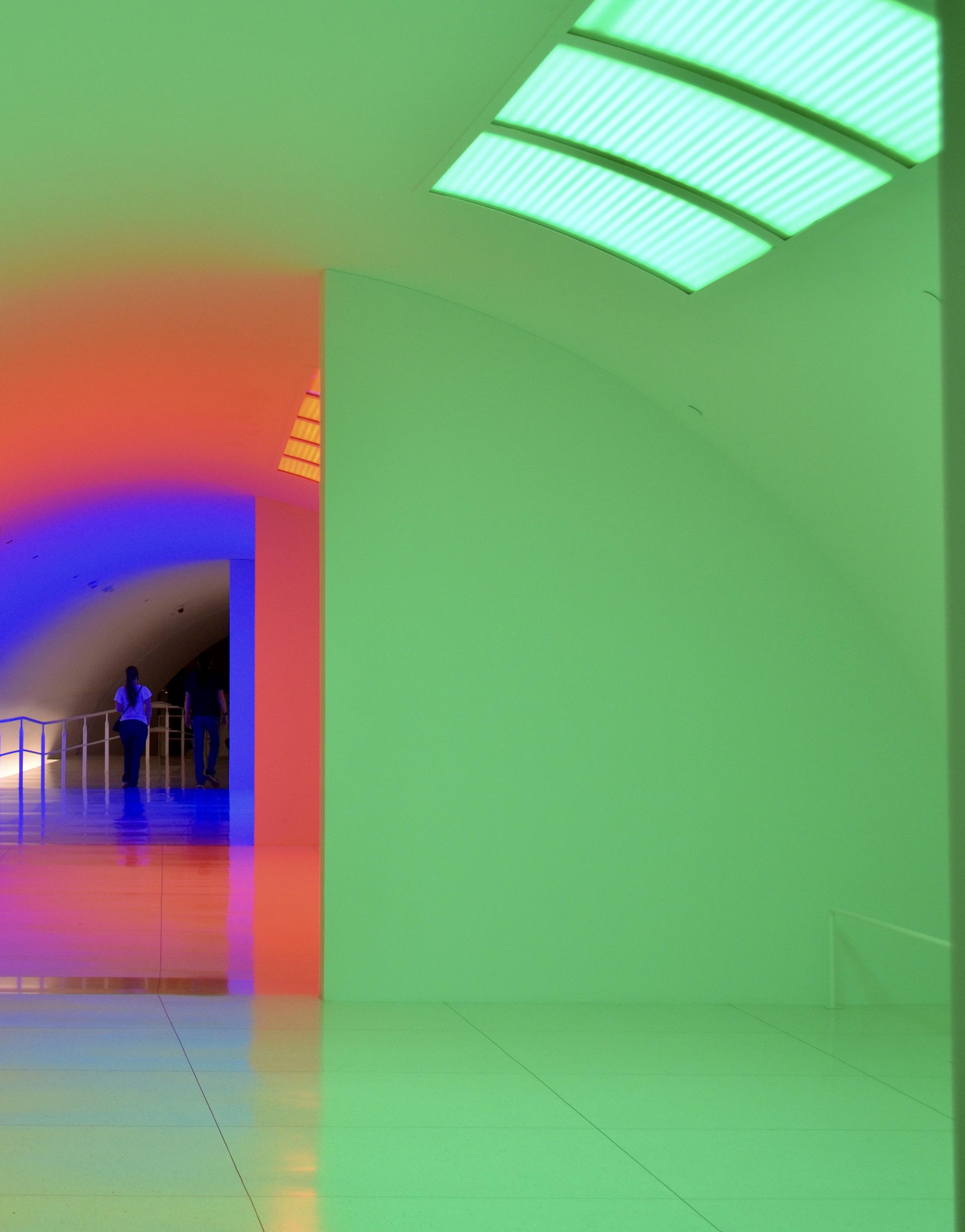
Evangelia (Evi) Alexopoulos is a third-year medical student at Duke currently in Eldoret, Kenya, participating in research on rheumatic heart disease. She is interested in the overlap between cardiology and women’s health.
She is crashing, and she is 21.
I sightsee on the weekends, and I am 25.
The senior medical officer runs to her bedside.
I sit in the workroom staring down a massive paper chart. She is 21 and her family is whisked away by a nurse.
The pharmacist mixes a cocktail of pressors.
Three nights ago, I laughed over drinks in a smoky club.
Her heart is failing – has been failing – the ventricles are tired.
I run on dusty red roads as the sun rises and the air swells with the tang of charcoal.
Has she known? Has she felt time slow, or has it surged at a horrifying speed?
I check my watch – Swahili lesson in a few hours. Dinner later. A call with a friend.
She is crashing, and she is the same age as my sister. At one point she had an infection and, afterwards, her body marked itself for destruction.
It picked apart her heart’s valves, making them ugly and scarred. With the same infection in third grade, I stayed home from school and devoured orange popsicles.
She was 21 and her family returns, stumbling, blind to everything except the unacceptable that has happened. They are wailing and screeching. They are sobbing and pleading.
I am 25 and I compose a mental note to call my mom.
The pharmacist comes into the workroom, beads of sweat hanging from his forehead. He gives me a look, and I know.
Sophia Sayson is a senior undergraduate studying Biology and Education at the University of Washington
A mountain of unsorted laundry sits atop my bed at home
I’ve never been good about folding and putting them away
Though at work, it turns into an easier task somehow
At the nursing home, I fold the residents’ clothes for them
Their joints are too stiff to match seam to seam
To slip the buttons into place one by one
It’s been a few years since I got the call
That you were gone
While folding Eloise’s towels into quarters
In the fifth floor laundry room
“Your father died ... We are sorry for your loss.”
Absentmindedly, I put the neatly folded towels back into the washing machine
In between call lights
I return to the laundry room
And sink to the laminate floor
I press my knees to my chest
And stare at the towels as they toss around in the dryer
“Have they always been this white?” I think to myself
Papa,
I’ve gotten better at putting my clothes away
But I’m still in the laundry room
Waiting for the towels to dry
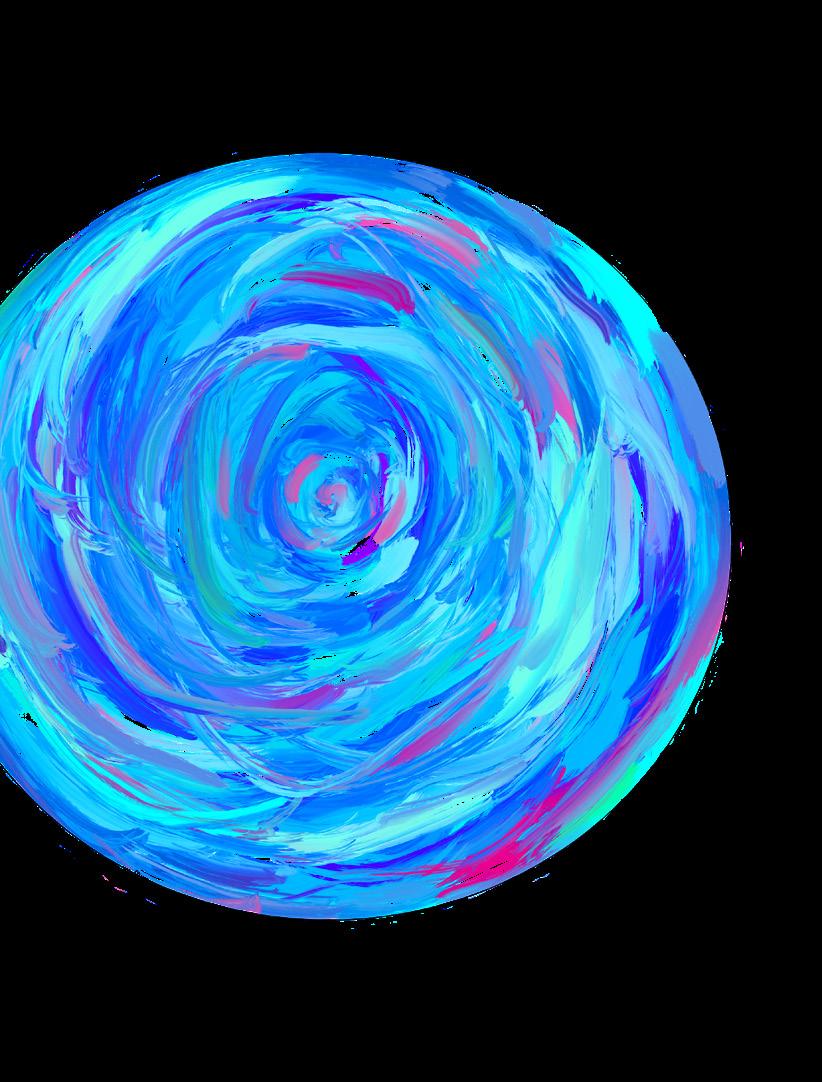
sites.duke.edu/voices

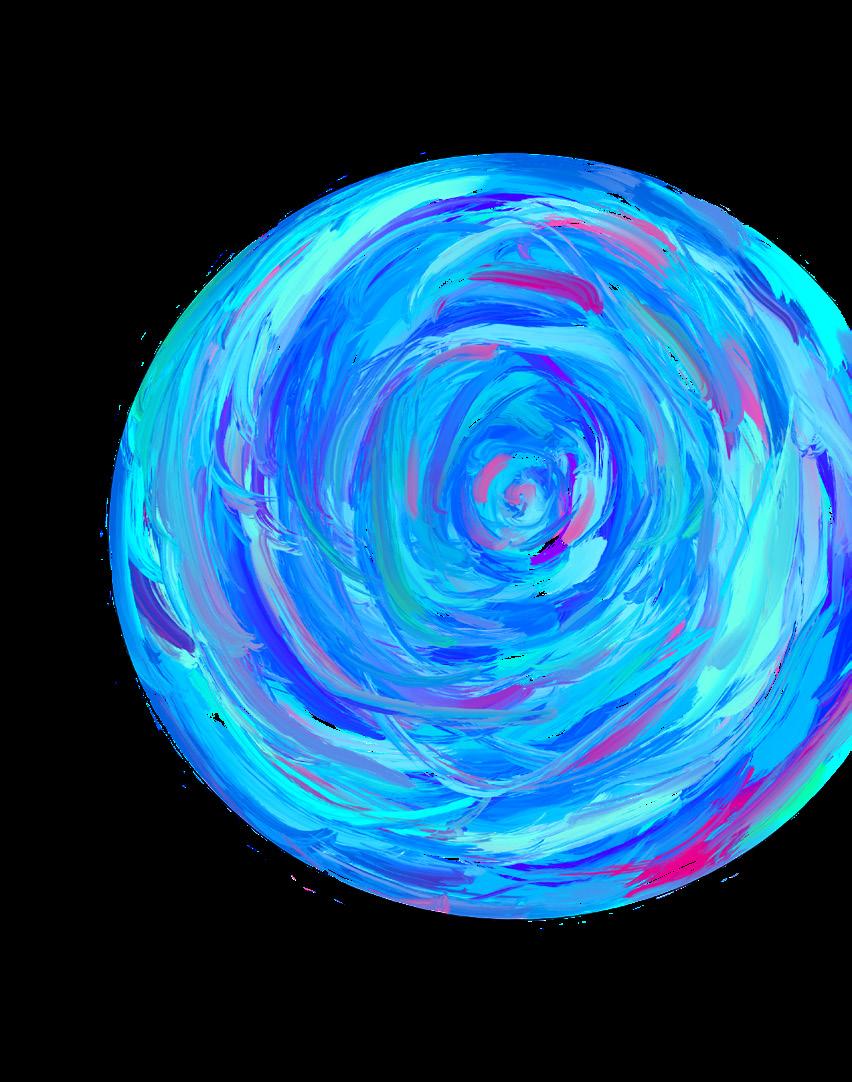
Christopher Lee recently graduated from the University of Washington and hopes to become a physician one day.
A Signal Transduction Pathway Infinitely More Painful for Me to Learn than Any Pathway in Introductory Biochemistry:
Seeing the new pack of Pokémon cards at Target
A quickening pace away
In the pediatric cancer unit
Some of the other kids ask me if they are going to be okay.
The clack of a dropped plastic shopping basket
Thankfully he never asks, and we are both spared from hearing my broken voice.
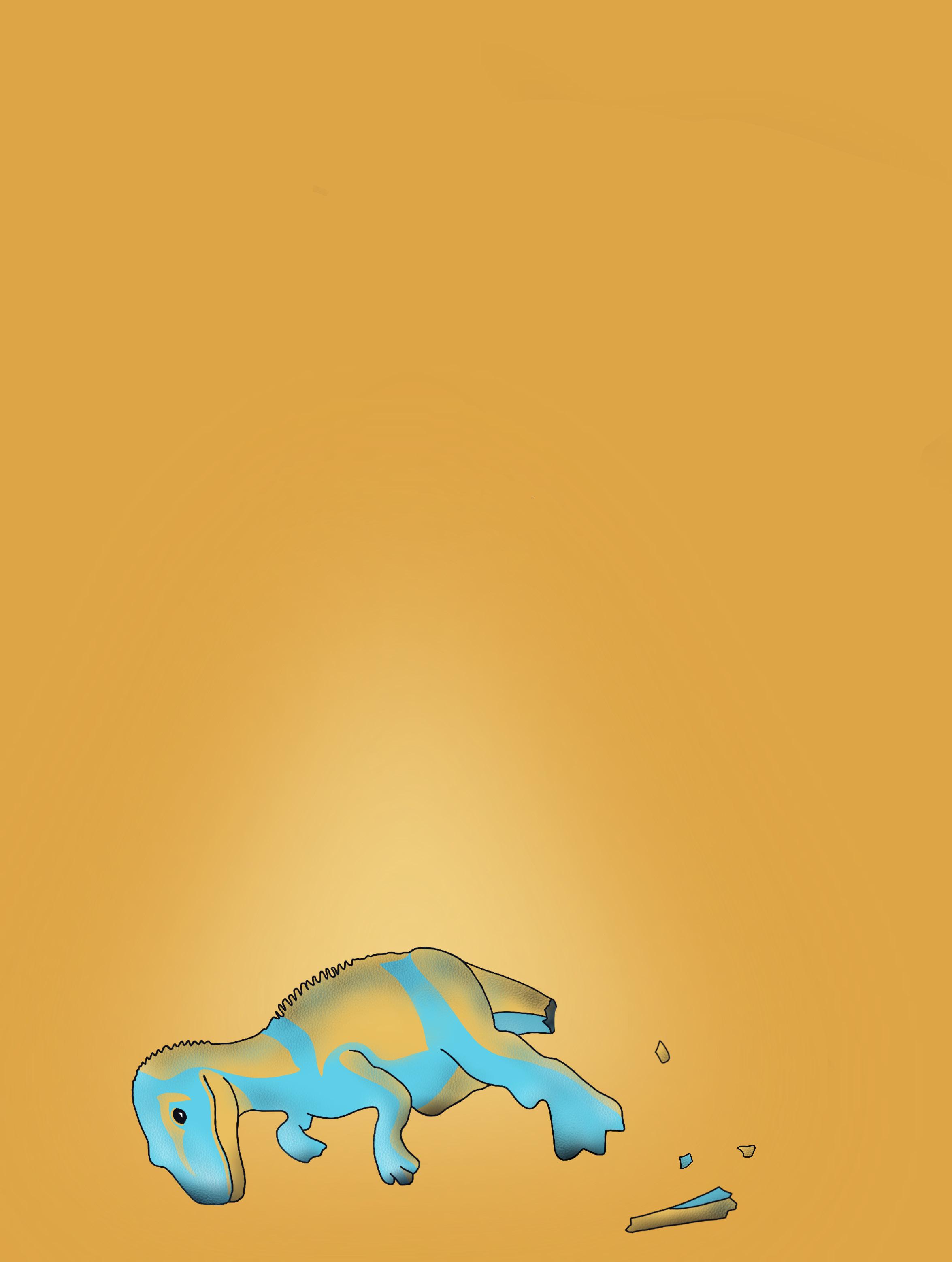
Catalyzed by memories of little giggles that will never kiss the air again
“You don’t look like an adult. You look like a big kid!” he tells me.
I laugh and say,
“I think all adults are big kids on the inside.”
Inhibiting the protein that holds back stockpiled tears
He giggles when we play with Pokémon figures—his favorite.
Increasing the flux of fluid out of lacrimal glands I accidentally break the tail off of a toy and
Increasing [Concerned Looks from Strangers] I promise to get him a new one for the next time
Ending - for now - with three final products:
1) dampening t-shirt sleeves, the next time
2) regret over a broken promise , and the next time.
3) a big kid who wonders if he is cut out for being cut up like this again.
As part of the neurological exam, stroke patients at Duke University Hospital are often asked to repeat the words “Today is a sunny day in Durham.”
Repeat this now: today is a sunny day in Durham, Gauzy gray out, today is a sunny day in Durham.
My blood is breeding islands getting lodged upstream, chaplain hums discovery in the reeds, strange Sundays in Durham.
I am still turning someone else’s hand into a fist, do I know knuckles, Tuesday, pen cap, sundries in Durham?
Look straight ahead, I’m shining a bright light and the eclipse constricts, right and then left, aura fades, sun dazed in Durham.
I was young once, arms like a boxer, the spiked pain of that Push me away, doctors teach my son doses in Durham.
Take this brain and invert it, read it – Doctor, invoke it, Raise your arms. A litany of sunny days in Durham.
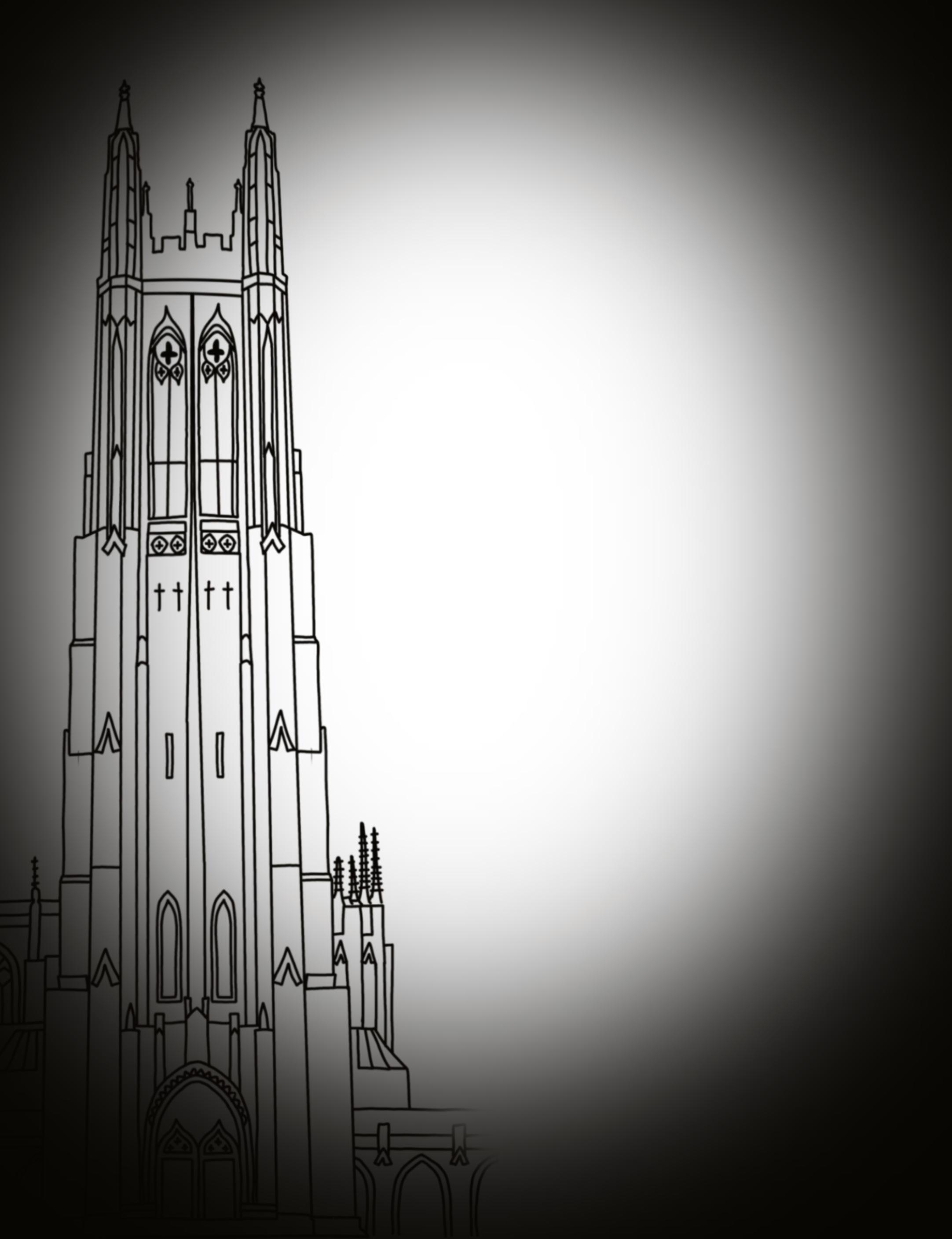
Sophia Marusic is a second-year medical student at Duke University School of Medicine.
12 sites.duke.edu/voices
Rachelle Shao is a first-year medical student at Duke University School of Medicine.
During anatomy lab, there is a lot of cognitive dissonance when thinking about my donor. This psychological distance I put between myself and our donor separates the donor into three separate identities in my head: the faceless one covered with cloth, the cadaver as a scientific tool, and the woman who owned a flower shop.
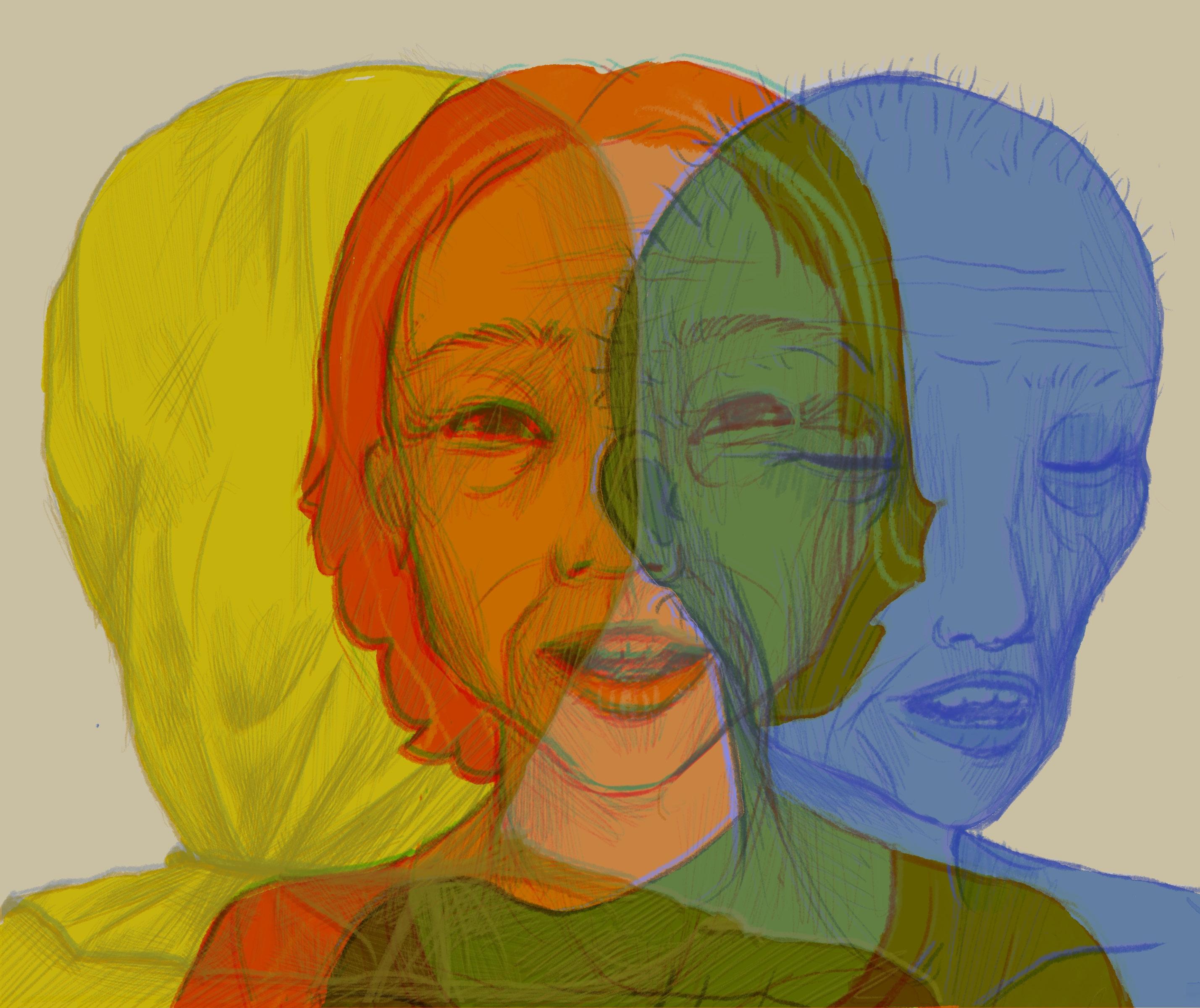

A heaviness, a leadenness, starting at the top of my scalp, setting into my throat, which feels full of something rich, alive. The world is alive, I notice to myself, as I make the walk home from another eight-hour day at school. I notice the bugs around me, the spare flies in the air, and I notice their animation with a same appreciation Of the animation I call my own, in my limbs and in my mind. I call you on a bench outside of the hospital and I switch benches
Three times in our conversation, moved compulsively by sunlight and shade, allowing your voice to return me to you. Yeah, I think I can
See exactly what you mean by your framework, I say, I can look around and imagine the people around me as avatars that a soul decided to animate and play around with. You talk to me about how the body is the soul’s favorite way to express itself, the body is the soul’s playground. It’s all play, fits of laughter, sudden levity,
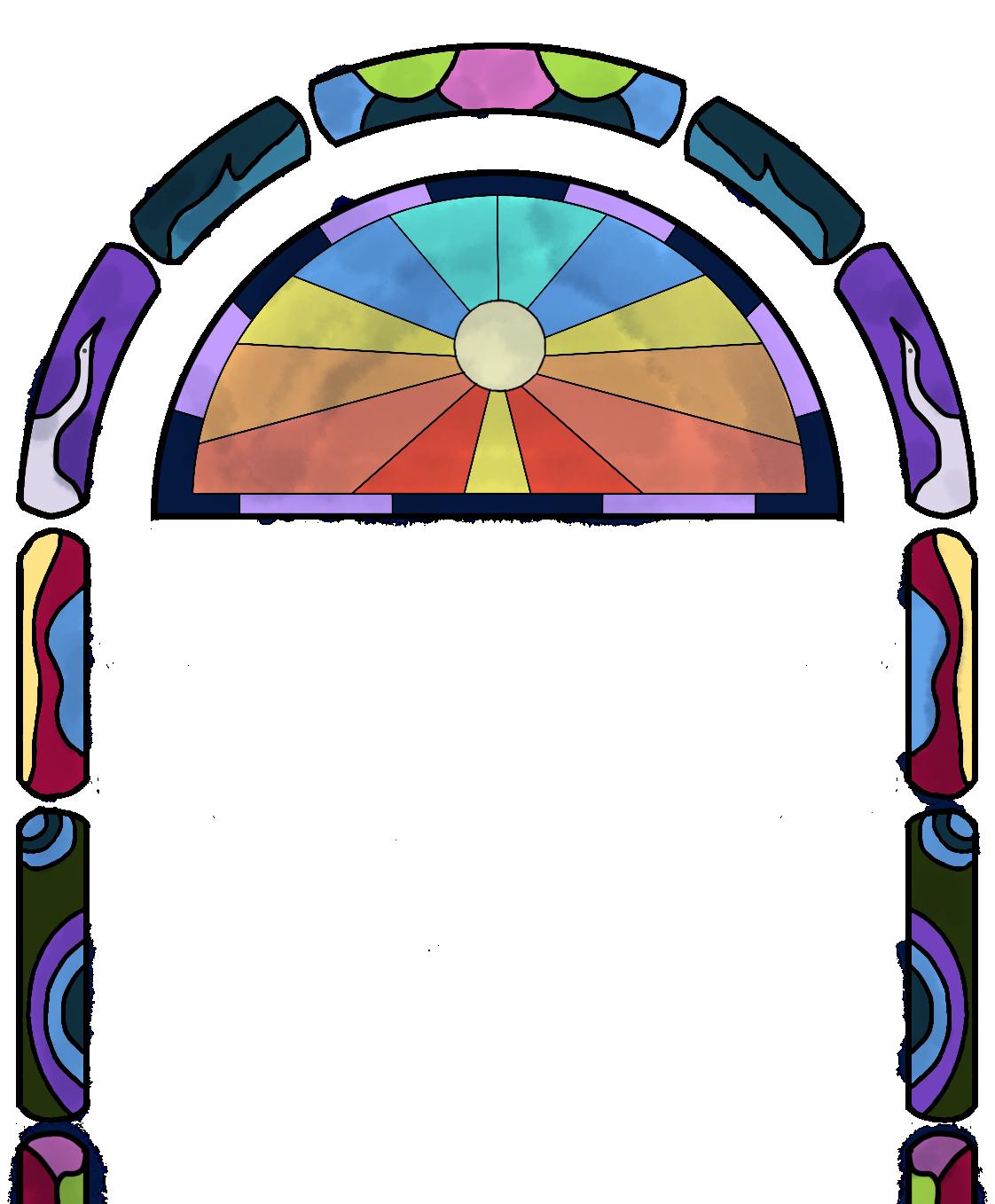
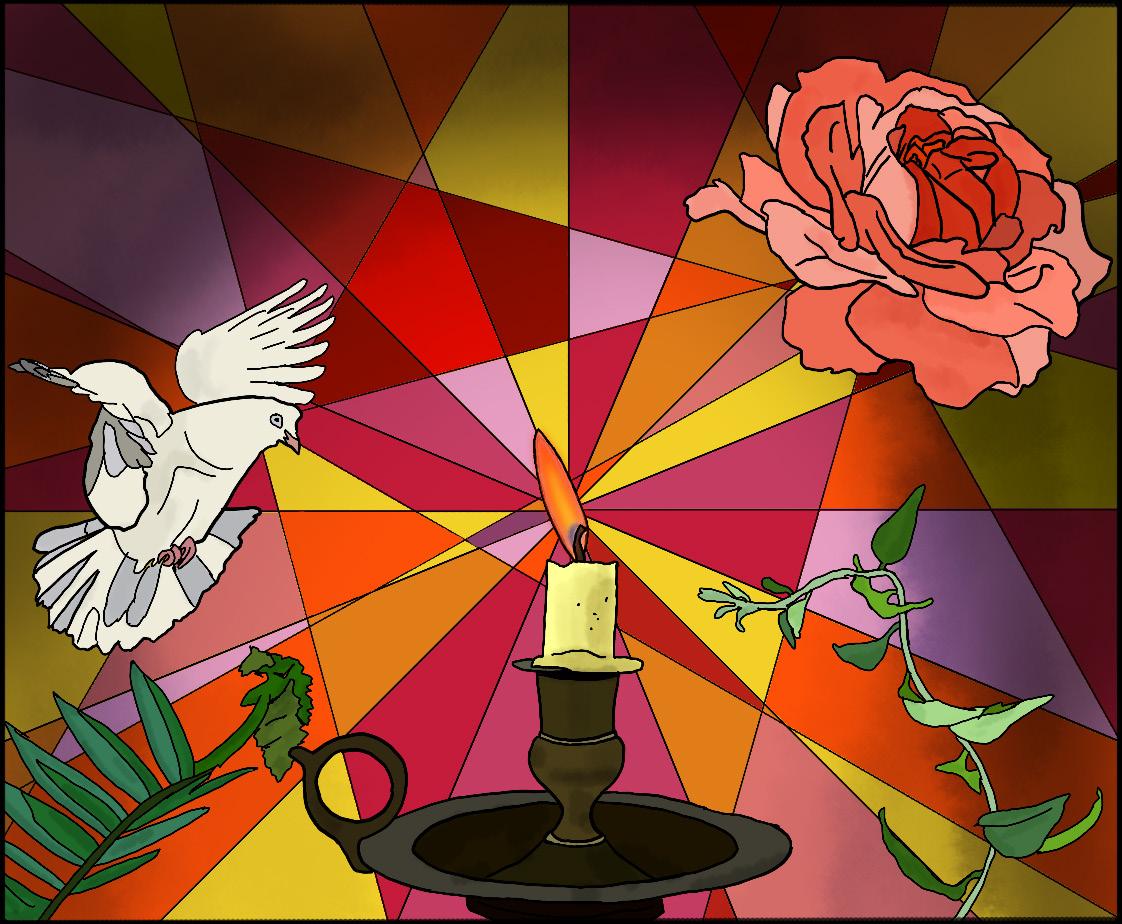
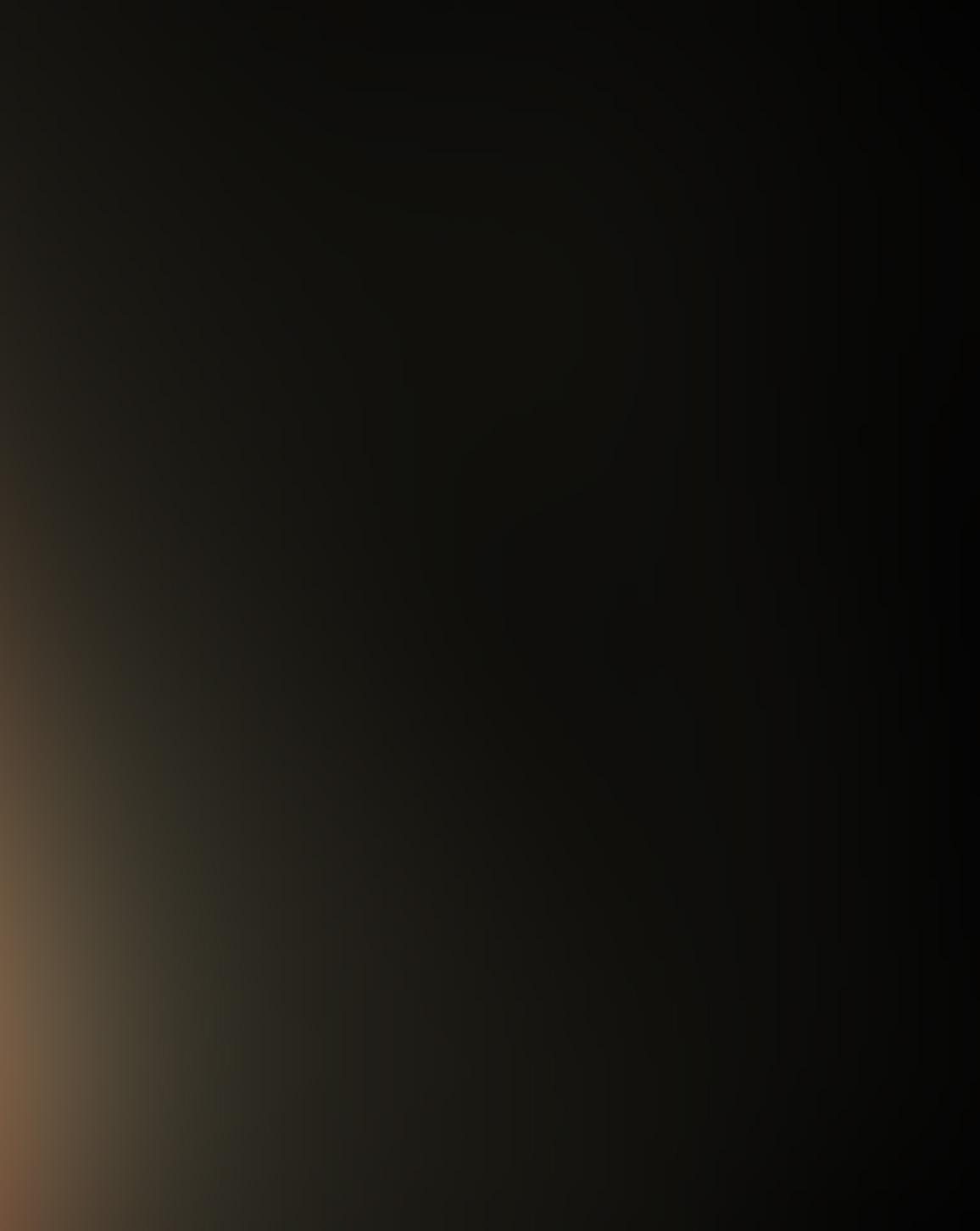
joy just to be around someone you love, splinters of broken sunlight on the floor.
Throngs of rain fell behind a patient I talk to on Tuesday, who talks to me about how for forty-seven years, no matter what he does, he can’t help his mind from taking him to the worst possible place. His wife listens on, nods emphatically, says “Yeah, it’s been hard for me too.” No matter how hard someone knocks at your window, your door, sometimes you’re just trapped within yourself. We talk to him longer, then leave, to go back to class, and the limitations of it all dawn upon me. The limitations of empathy, connection, conversation. You talk to me about how a single moment can reverberate far longer than its initial premise, about how we actually experience things three times over. Once on the plane of the external, then on the plane of the internal, then on the plane of the soul. Looking at the cadaver I have been assigned to this year, I find meditative relief in the cutting of fascia, and find out my teammate feels the same way too. It’s so hard to explain, it’s so visceral, you hear a very faint noise as you cut through the thin white tissue, revealing layers of muscle beneath, and the motions of it, are somehow beautiful, enough that before I fall asleep, I sometimes catch myself replaying the feeling of that. You remind me I must have an intuition that her body is not all she was, that her body is just what she left behind. That’s why seeing her like this doesn’t make me cry. The human body is actually a very complex, enchanting instrument. Today, I got to hear the sound of neurons firing as my teacher’s thumb moves. Amazed, I ask her about the electrical current that we carry from all of our neuronal activity, if it can be perceived. Not by other humans of course, but it is there. Electricity at work within me. As I walk home from class, a sunset is on the horizon, one I’ve seen a thousand times over, pink clouds with marked bright orange edges. I have the thought for the first time in my life, a sudden grief that one day I won’t live to see another sunset. I’ve never had this thought before. But I’ve also never been more aware of the fact that I’m alive, never been so acutely grateful for it. My medical education is my spiritual education, was my reminder in the chapel on the day it thundered. I feel the ripple effect of all I’m learning enter my soul, awaken me even deeper into the unexplainable quality of the moment, of the life through me. I hear crickets, I watch leaves move on a tree, and I see a full moon. When I go to sleep, I dream of sudden rain.
sites.duke.edu/voices voices@duke.edu


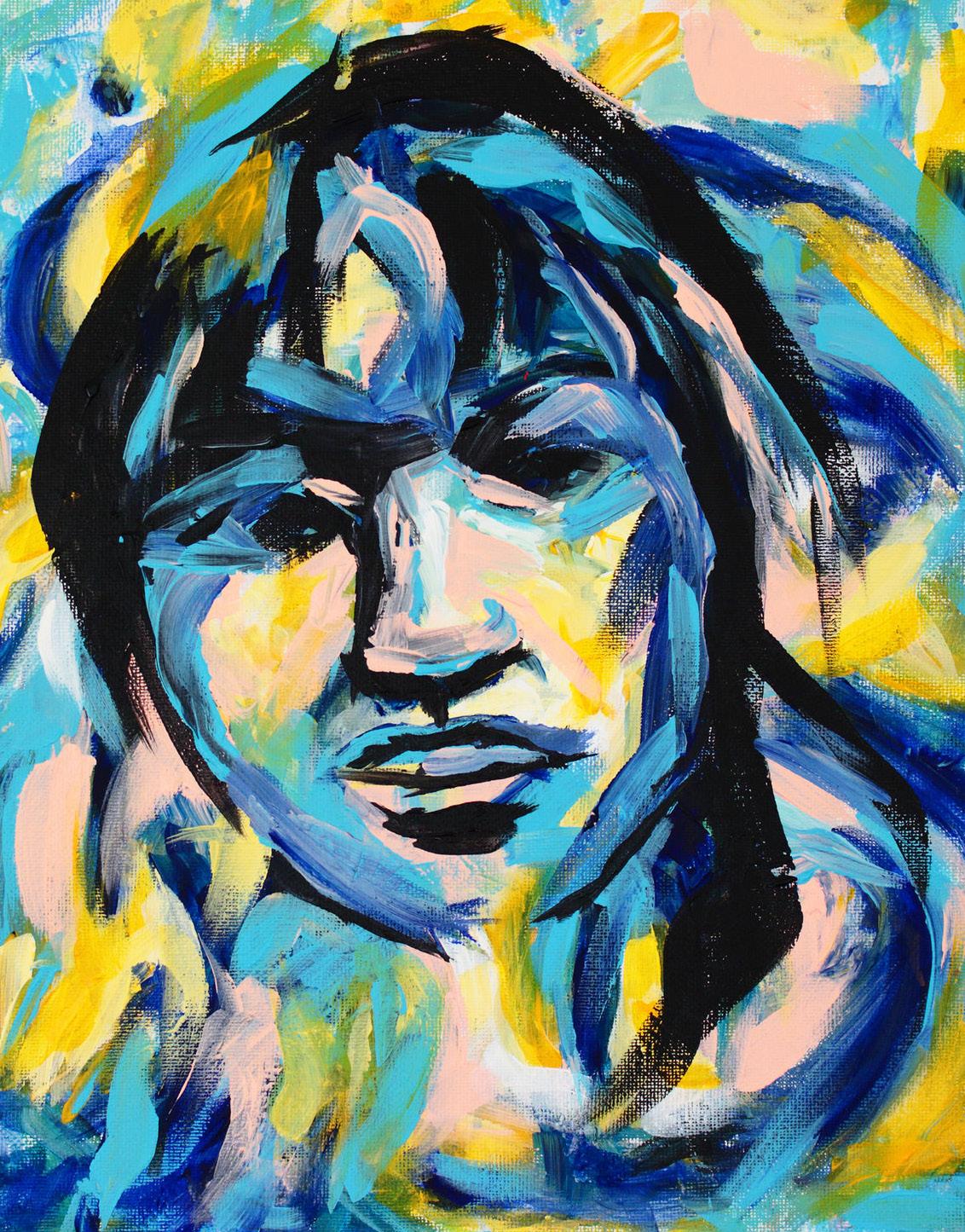

front and back cover artwork: Introspection
Medium: acrylic
RobynGuoKuisathird-yearmedicalstudentinterestedinexploringtheintersectionbetween visualart,medicine,andcommunityhealth.
In medicine, we are tasked to present ourselves in a professional manner that can force us to hide how we really feel. This creates dissonance between our outward persona and our true self. This self-portrait illustrates how upon introspection, I realized that many times I have had to suppress my emotions including anger, sadness, and anxiety to maintain a ruse of professionalism.
sites.duke.edu/voices